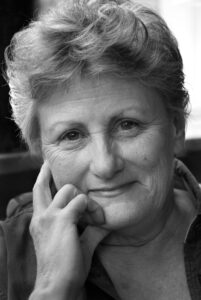

Today, Feathered Quill reviewer Trix Lee-Rainwater is talking with Ginny Rorby, author of Girl Under Glass.
FQ: Plant perception and communication is a niche scientific concept. How did you first become interested in this area, and what made you want your story to feature it?
RORBY: I read The Secret Life of Plants in 1974 and became fascinated with the concept of the ability of plants to communicate, which back then was considered woo woo science at best. Early in the book, there was an experiment performed by CIA polygraph instructor Cleve Backster. He put two potted plants side by side in his office, one of which was hooked to his polygraph. His CIA students drew straws and the short straw (unknown to Backster or the other students) secretly went in and destroyed the plant not hooked to the polygraph. After the deed was done, Backster filed his students through the room, past the surviving plant which registered alarm when the perpetrator passed by. I wasn’t a writer back then, but so loved this story that I wrote the producers of Columbo to suggest it would make a great episode. I received a thank you but-- “we have our own writers.” I took my first creative writing class in 1982 and wrote a godawful short story entitled The Greenhouse. Forty years of writing experience and six novels later...
FQ: There's a sort of magical realism with the concept of plants as witnesses to a crime. How did you decide on the boundaries and rules for this magical realism element within an otherwise grounded story?
RORBY: Though Backster’s polygraph experiment – to my knowledge — has never been replicated, other experiments with plants have, including the chromograph experiment on Lupinus, which I shan’t spoil. All the experiments in story are real. And the ability of plants to communicate is now fact. The magical part is opening our minds—young and old—to the wonders of nature.
FQ: Kelsey's journey from a disillusioned delinquent to a compassionate, resilient young woman is a turning point of the story. What were the key influences or experiences that shaped her character arc?
RORBY: Not until Kelsey gets in trouble the second time and is arrested does she begin to appreciate the friend she has in Hobby. And, like anything or anyone we don’t fully appreciate until we lose it/him/her, it’s not until the attack on Hobby that she fully realizes she may lose her one true friend.
FQ: What was the inspiration behind the eccentric botanist Hobby and his role as Kelsey's mentor?

RORBY: My undergrad degree is in biology from University of Miami. All my electives were ornithology classes taken with Dr. Oscar “Bud” Owre. When I started writing, he cleared paths for me to pursue that career. I wouldn’t call him eccentric, just kind. But Hobby is named after John Hopkins, a retired Miami News editor, who in 1981, after reading an op-ed story I wrote about an abandoned dog, called me and said, “If you can write like that, we’ll publish anything you write.” Until then, that article was the only thing I’d every written. His call changed my life. His nickname is Hobby.
FQ: The story touches on the complexities of addiction and its ripple effects on families. What kind of research or personal experiences informed your portrayal of this sensitive topic?
RORBY: Quite simply, my father was an alcoholic. No research necessary.
FQ: Kelsey's relationships with her mother, father, and Detective Moran are complex and multi-layered. What were the most challenging aspects of portraying these intricate family dynamics and personal connections?
RORBY: I drew from my own personal experiences. One thing I find helpful is naming my main characters after people I love. I don’t portray them as they are, but I care deeply about how I represent the characters named after them.
FQ: Empathy and resilience are central themes throughout the story. What insights or messages did you hope readers would take away regarding the importance of these qualities?
RORBY: The Last Child in the Woods: Saving Our Children from Nature-Deficient Disorder (2008) woke me to the realization that where I have always taken solace is being lost to generations of children. If I can open eyes to the excitement of being out of doors, I’ll be happy. And, of course, no matter how many wrong choices one makes, as the quote in the beginning of the book says: “It’s never too late to become who you might have been.”
FQ: Without giving too much away, can you tell us about future plans or ideas you may have for continuing Kelsey's story or exploring the themes of plant perception and human-nature connections further?
RORBY: All six of my other novels explore our relationship with animals and the natural world. Since I spent 40 years rewriting and noodling Kelsey’s story, I’m setting us both free. My next novel is time-travel and full of whales.
Disclosure in Accordance with FTC Guidelines 16 CFR Part 255
Copyrights © 2023 Feathered Quill Reviews All Rights Reserved. | Designed & Developed by Unglitch.io